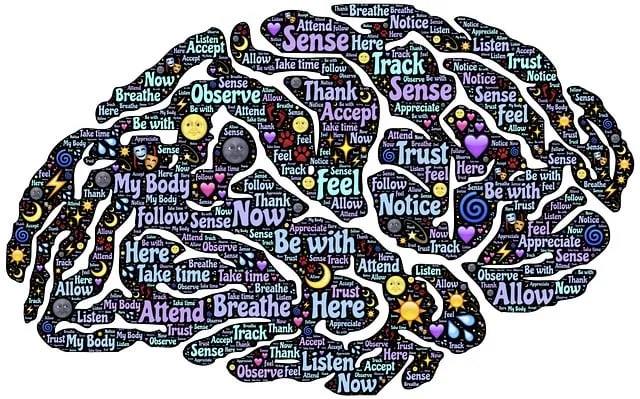Kaiser Permanente's training programs in Lafayette are tackling mental illness stigma through educational initiatives like Mindfulness Meditation and Inner Strength Development, empowering practitioners with Risk Management Planning tools. These comprehensive programs foster understanding, promote emotional well-being, and encourage early intervention. By engaging diverse communities and employing data-driven evaluations, these initiatives aim to create a culture of support and acceptance for those facing mental health challenges in Lafayette.
Mental illness stigma continues to be a significant barrier to individuals seeking much-needed help. This article explores comprehensive efforts to reduce this stigma, focusing on the innovative Kaiser Permanente training programs in Lafayette. We delve into their community engagement strategies and the importance of education in breaking down perceptions. By examining these initiatives, we gain insights into effective methods to create a more inclusive environment, encouraging open conversations about mental health and fostering support for those affected.
- Understanding Stigma: Barriers to Seeking Help
- Kaiser Permanente's Approach: Training Programs in Lafayette
- Community Engagement and Education Strategies
- Measuring Success: Evaluating Impact and Continuous Improvement
Understanding Stigma: Barriers to Seeking Help

Mental illness stigma significantly hinders individuals from seeking necessary help and support. The fear of judgment or discrimination often deters people from openly discussing their struggles, leading to prolonged suffering in silence. This is particularly evident in communities where mental health conversations are less normalized, such as in the Lafayette area served by Kaiser Permanente training programs.
Efforts to reduce stigma must address these barriers by fostering understanding and empathy. Programs like those offered by Kaiser Permanente can play a pivotal role through educational initiatives focusing on topics like Mindfulness Meditation and Inner Strength Development. Furthermore, integrating Risk Management Planning for Mental Health Professionals into the curriculum equips practitioners with tools to navigate challenging situations sensitively, thereby modeling supportive behaviors that can ripple out into the community.
Kaiser Permanente's Approach: Training Programs in Lafayette

Kaiser Permanente has taken a significant step towards reducing stigma associated with mental illness through its comprehensive training programs in Lafayette. These initiatives focus on educating the community and fostering a culture of understanding and support. The program incorporates various techniques for emotional well-being promotion and resilience building, empowering individuals to recognize and address mental health concerns effectively.
By integrating emotional intelligence into their training, Kaiser Permanente equips participants with essential skills to navigate conversations about mental illness with empathy and awareness. These programs create a supportive environment, encouraging open discussions on topics that were once considered taboo, thereby promoting early intervention and better outcomes for individuals struggling with mental health issues.
Community Engagement and Education Strategies

Community engagement and education are powerful tools in the battle against mental illness stigma. Organizations like Kaiser Permanente play a vital role by offering training programs tailored to diverse audiences, such as those in Lafayette. These initiatives focus on raising awareness about mental health issues and fostering understanding through interactive workshops and discussions. By engaging community members directly, these programs aim to dispel myths surrounding mental illness, encourage empathy, and promote early intervention.
The impact of such efforts extends beyond individual growth; they contribute to a collective shift in societal perception. Educating the public about Anxiety Relief, Depression Prevention, and Emotional Well-being Promotion Techniques can lead to increased support for those facing mental health challenges. This inclusive approach ensures that individuals from all walks of life gain valuable insights, fostering a more accepting and compassionate community environment.
Measuring Success: Evaluating Impact and Continuous Improvement

Measuring success is a critical component of stigma reduction efforts, as it allows for a clear understanding of the impact and effectiveness of initiatives. Kaiser Permanente training programs in Lafayette have employed various methods to evaluate their mental health education programs’ design and social skills training. By assessing participant feedback, tracking changes in attitudes and behaviors, and measuring the adoption of learned coping strategies, these programs gain valuable insights into their progress.
The integration of burnout prevention techniques within these initiatives has further enhanced evaluation strategies. Through regular check-ins and post-program assessments, participants’ well-being and stress levels are monitored, providing a comprehensive view of the program’s overall success. This data-driven approach ensures continuous improvement, allowing for the refinement of programs to better cater to the unique needs of those facing mental health challenges.
Stigma reduction efforts, such as those implemented by Kaiser Permanente’s training programs in Lafayette, play a pivotal role in fostering community support for mental health. By addressing barriers to seeking help and engaging in education strategies, these initiatives ensure that individuals experiencing mental illness receive the necessary support and care. Measuring success through evaluation and continuous improvement is essential to adapt and enhance these programs over time, ultimately contributing to a more inclusive and understanding society for those living with mental health conditions.





